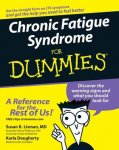2 page White Paper synoposis example (see above for actual white paper)
Here, as an example, is the 2-page text of the "synopsis" of a white paper (pdf file in my above posting). The backup document to this synopsis is listed above as well and it is 15 pages of clear, direct backup information to the synopsis. ~FernRhizome
White Paper from the Gastroparesis Dysmotility Association in Canada
Gastroparesis and Related Digestive Motility Diseases, a Medical Crisis.
Prepared by:
Gastroparesis and Dysmotilities Association (GPDA)
August 19, 2003
Synopsis
The aim of this White Paper is to call attention to a very serious group of digestive disease neuromuscular disorders that for too long have received inadequate research funding. This White Paper is intended for wide dissemination among the House and Senate, the Director of the National Institutes of Health (NIH), and the Food and Drug Administration (FDA) Commissioner.
This Paper serves to outline the scope of the crisis. The four main categories of severe paralytic digestive motility diseases specifically, gastroparesis, chronic intestinal pseudo-obstruction, colonic inertia, and achalasia cost U.S. taxpayers billions of dollars annually. Significant morbidity and mortality statistics exist for this group of digestive diseases.
Furthermore, the Paper will help to inform government officials of the cost generated by human suffering, as well as of the impediments that exist, due to lack of FDA approval, to accessing the few treatment options currently available. These impediments raise the cost of health care and increase mortality.
On May 17th, 2003 in Orlando, Florida, the First International Scientific Task Force on Gastroparesis was convened (see Appendix I). This scientific think-tank attempted to address the enormity of the problem surrounding the most common of the digestive neuromuscular diseases: gastroparesis. The task is daunting, since so little is known about gastroparesis and since limited resources exist to even outline its prevalence, let alone to search for effective treatments. Gastroparesis and the other related digestive motility* diseases share this paucity of scientific data and treatment options. Very little scientific headway has been made over the past 20 years in spite of the fact that collectively, these are not rare diseases.
These diseases, afflicting men, women, and children, are in need of catch-up work to help redress the current situation. Very limited resources exist in the private sector to correct the crisis. Patients and families need hope that their government will provide the leadership to help advance the search for effective treatment options.
This White Paper is very important and timely since government action can help advance the initiatives that have come out of the Task Force meeting.
Page 2
White Papers: Synopsis: Gastroparesis and Related Digestive Motility Diseases, a Medical Crisis August 19, 2003
Quick Facts about the Digestive Motility Diseases Medical Crisis:
Digestive motility diseases:
Have mortality statistics;
Are disabling;
Cost taxpayers billions of dollars annually;
Currently do not have any pharmacological therapies specifically tailored to them;
The one effective treatment device is extraordinarily difficult to obtain as it is presently approved only under humanitarian release by the FDA. This lack of full approval increases health care costs and mortality rates;
Pharmacological therapies that have been used in treating motility diseases, and found to be effective, are not available because they lack FDA approval;
Social Security claims for disability are very difficult to obtain; this may be due in part to the lack of understanding by government officials regarding the seriousness of motility diseases;
No consensus guidelines exist for adult motility diseases; hence misdiagnosis and mismanagement of these diseases frequently occurs;
No standardization of diagnostic methods currently exists;
No statistics exist to outline the extent of the problem;
Few resources exist in the private sector to correct the crisis; and
Very limited resources have been spent by the NIH investigating the pathobiology, especially for the adult and pediatric idiopathic group of digestive motility diseases.
Finally: The US government through NASA has spent close to $20 million researching the effects of, and methods to ameliorate, motion sickness for space and military personnel. Motility patients live for years experiencing symptoms similar to motion sickness on a daily basis. This sum of money represents a greater amount than has been spent by the government on research into all of these lethal motility diseases. In 2000 the National Institutes of Health (NIH) spent $2 million on motility research (1), most of which was spent on basic research. Very few, if any, research dollars have been spent by the NIH on the search for effective treatment options for these digestive motility diseases.
_______________________________________________________________________
1. Report by Dr. Frank Hamilton (Branch Chief; Gastrointestinal Motility Program Director; Gastrointestinal Mucosa and Immunology Program Director; AIDS Program Director, NIDDK) to the First International Scientific Task Force on Gastroparesis, May 2003, Orlando, Florida.
* The terms paralytic, motility and neuromuscular may be used interchangeably when describing this group of diseases.

